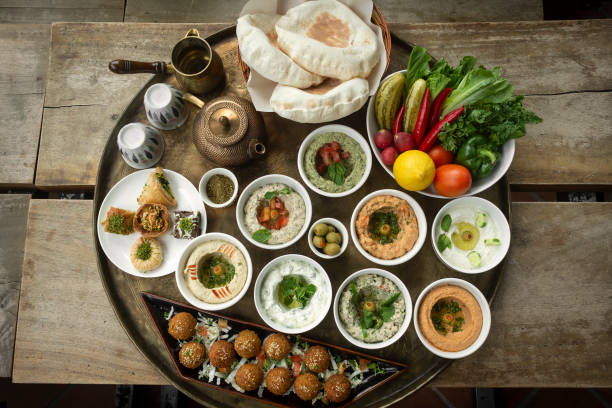Turkish cuisine, known for its rich flavors and diverse dishes, offers a wide range of plant-based alternatives. Many traditional recipes are naturally vegan or can be easily adapted. Here are some of the best plant-based Turkish dishes:
- Zeytinyağlı Dolma (Stuffed Vine Leaves with Olive Oil) – A classic dish made with rice, pine nuts, and aromatic herbs.
- Mercimek Köftesi (Lentil Balls) – A delicious and protein-packed alternative to meatballs.
- Şakşuka (Eggplant and Tomato Medley) – A flavorful dish made with sautéed vegetables and olive oil.
- Kuru Fasulye (White Bean Stew) – A hearty and nutritious vegan stew.
- Bulgur Pilavı (Bulgur Pilaf) – A fiber-rich, healthy alternative to rice.
Gluten-Free and Light: Healthy Options in Turkish Cuisine
For those following a gluten-free diet, Turkish cuisine offers plenty of natural options. Some gluten-free alternatives include:
- Karnabahar Kısırı (Cauliflower Tabbouleh) – A light and gluten-free version of traditional bulgur salad.
- Yoğurtlu Kabak Salatası (Zucchini with Yogurt) – A refreshing and probiotic-rich dish.
- Etli Kuru Fasulye (White Bean Stew with Meat Alternative) – A satisfying, gluten-free, and protein-packed meal.
- Mısır Ekmeği (Cornbread) – A traditional Black Sea bread, perfect for a gluten-free diet.
Fermented Foods and Immunity: The Healing Side of Turkish Cuisine
Fermented foods have been a cornerstone of Turkish cuisine for centuries. Rich in probiotics, these dishes support gut health and immunity:
- Turşu (Pickles) – Fermented vegetables rich in probiotics and gut-friendly bacteria.
- Boza – A traditional fermented drink made from millet, known for its immune-boosting properties.
- Şalgam Suyu (Fermented Turnip Juice) – A spicy and tangy beverage rich in probiotics.
- Ev Yapımı Yoğurt (Homemade Yogurt) – One of the healthiest probiotic sources in Turkish cuisine.
Seasonal Eating: The Healthiest Aspect of Turkish Cuisine
Eating according to the seasons is a core principle of Turkish culinary traditions. Seasonal produce is fresher, more nutritious, and supports sustainability. Some examples include:
- Spring: Fresh greens like wild herbs, asparagus, and peas.
- Summer: Tomatoes, cucumbers, peppers, and eggplants in refreshing salads.
- Autumn: Root vegetables, pumpkins, and figs rich in antioxidants.
- Winter: Citrus fruits, cabbages, and lentils packed with vitamins and minerals.
Turkish cuisine offers an abundance of healthy, plant-based, and gluten-free alternatives that align with both traditional and modern dietary preferences. Whether you are vegan, gluten-intolerant, or looking to enhance your immunity with fermented foods, Turkish cuisine provides delicious and nutritious options for every lifestyle.

